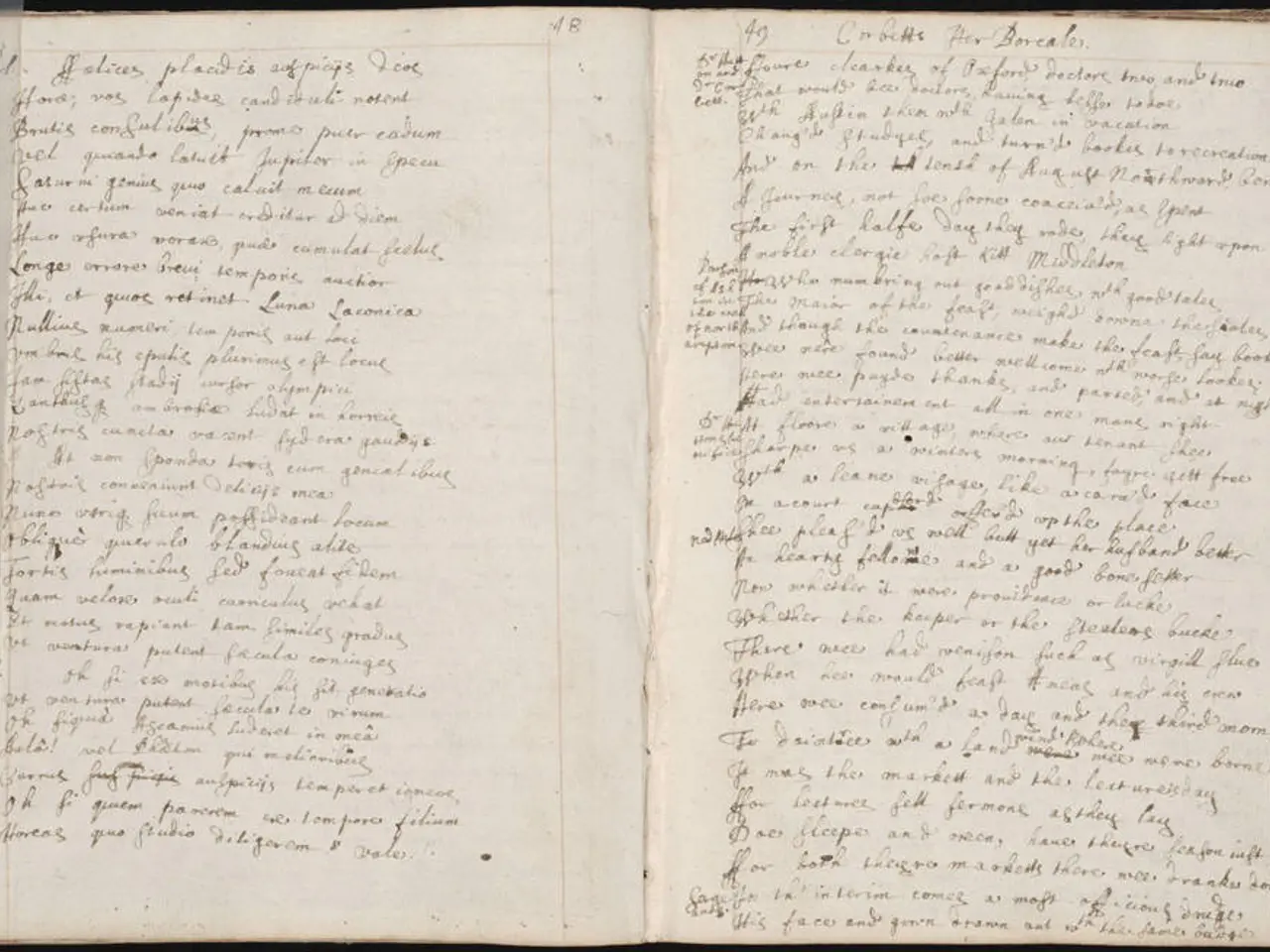Is it Possible to Incorporate Mindfulness Practices into the Process of Writing?
Mindfulness, a practice focused on self-awareness, is being discussed in various societal circles, and its benefits extend to the realm of writing. Mindfulness techniques can help overcome writer's block and improve writing focus, proofreading, and project management by promoting mental clarity, reducing distractions, and enhancing awareness of the writing process.
Overcoming Writer's Block
Starting a writing session with a short grounding or mindfulness exercise, such as focusing on the breath or bodily sensations, helps settle the mind on the task, minimizing anxious thoughts that interfere with flow. Mindfulness encourages being present, which can enable writers to notice mental blocks without judgment and gently move past them.
Changing your environment mindfully by deliberately shifting your writing location can also refresh mental focus and spark creativity, breaking habitual patterns that contribute to blocks. This environmental awareness is a practical application of mindfulness—tuning into how surroundings impact your mental state and adjusting accordingly.
Improving Proofreading and Writing Focus
To improve proofreading and writing focus, mindfulness can enhance attentional control by training you to observe your thoughts and distractions without reacting immediately, allowing more sustained concentration on detail-oriented tasks like editing. Engaging in brief mindfulness breaks during proofreading can reduce fatigue and spotting errors with a clearer mind.
Enhancing Project Management
For project management of writing tasks, mindfulness supports better prioritization and task awareness by helping writers recognize procrastination triggers and stress responses, enabling deliberate planning and steady progress. Reflective practices like journaling about your writing habits and emotional responses help boost self-awareness, leading to more realistic goal-setting and improved workflow.
Practical Mindfulness-Based Strategies
Some practical mindfulness-based strategies to apply include:
- Starting sessions with breathing exercises or short mindfulness meditation
- Using journaling prompts that encourage reflection on writing progress and obstacles
- Periodically reassessing your writing environment to identify what supports focus best
- Practicing non-judgmental awareness of distractions during writing or proofreading, then gently returning focus to the task
- Breaking writing tasks into smaller, mindful steps and managing them with intentionality rather than pressure
The "Duracell Bunny", "Flush", "Clapback", "Block-Be-Gone" Exercises
The "Duracell Bunny" exercise encourages writing about the most interesting part of a scene as fast as possible for two minutes, ignoring spelling, grammar, and sense, to generate new ideas quickly. The "Flush" exercise involves writing down whatever comes to mind first thing in the morning or when sitting down to write, following the train of thought to its end. The "Clapback" exercise helps writers combat negative thoughts or doubts by writing down positive responses to them. The "Block-Be-Gone" exercise encourages writers to root themselves in the scene and write their reactions or descriptions as they see it in their mind, acting as a placeholder until a better idea comes along.
In sum, mindfulness offers both mental tools and behavioral strategies that cultivate a creative, focused, and organized writing process, helping to overcome blocks and improve overall productivity in writing projects.
Sheree Crawford, a UK-based content writer and ghostwriter, often writes about the art of writing and attests to the benefits of mindfulness in her work.
Read also:
- Stem cells potentially enhancing joint wellness and flexibility during aging process?
- Obtaining Ozempic: Secure and Legal Methods to Purchase Ozempic Online in 2025
- Home-Based Methods and Natural Remedies for Managing Atherosclerosis
- Exploring the Natural Path: My Transition into Skincare with Cannabis Ingredients






